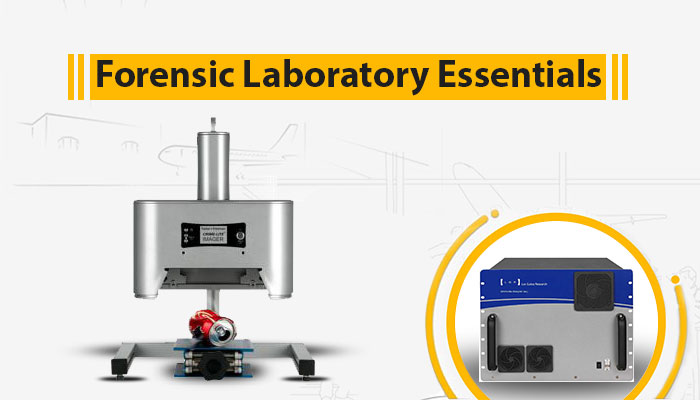
Forensic Laboratory Essentials - The Infographic
Forensic science is the application of scientific knowledge to legal problems or proceedings. Forensic science is largely concerned with testing physical and biological evidence to determine objective facts in law enforcement like what happened, when it happened, and who was involved. So forensic science capability is important as it may bring forward information which is more accurate, precise and reliable than the testimony or confessions of an eyewitness. The success of both investigations and trials in determining the facts of the case can increase with such valuable information.
Forensic laboratory equipment is used to collect & detect samples for further investigation and evaluation. Having state-of-the-art lab equipment is a necessity for any forensic laboratory. Some of the key measurements that forensic labs perform are:
- Trace evidence analysis
- Fingerprinting and DNA identification
- Evaluation of body fluids
- Compound determination like drugs or other hazardous chemicals.
This infographic lists forensic lab equipment that assists in proper forensic investigation and also presents information on various forensic lab sections.
So many crimes are solved today because of the investigation, analysis, and processing of evidence carried out by forensic labs. Forensic laboratories are required to produce accurate and reliable results for each and every case. Forensic professionals need lab equipment such as a microscope, fuming chamber, evidence bench, and other forensic products to accurately analyze evidence and interpret findings. Forensic lab equipment with digital and automatic control systems helps in better analysis of evidence. Forensic labs should use only accredited lab instruments in different lab sections such as DNA forensics, toxicology, biology & chemistry section. For a forensic lab, having lab instruments and equipment that provide accurate data is essential for better investigation.
Depending on your type of forensic analysis there are several forensic instruments and equipment options to choose from. Common instruments available in most forensic labs are microscopes, fume hoods, chromatographs, and spectrometers.
Key considerations for purchasing forensic laboratory equipment –
The price points of products are a key thing to look out for. Though there are low-cost alternative products for forensic lab testing available in the market, but it is important to rely on dependable and regulatory compliant, accredited systems. Another consideration is analysis time for your particular forensic lab instrument. It is critical to have a system that can provide accurate, reproducible data in a timely fashion as evaluation and determination is readily needed for further processing in the forensic industry.
